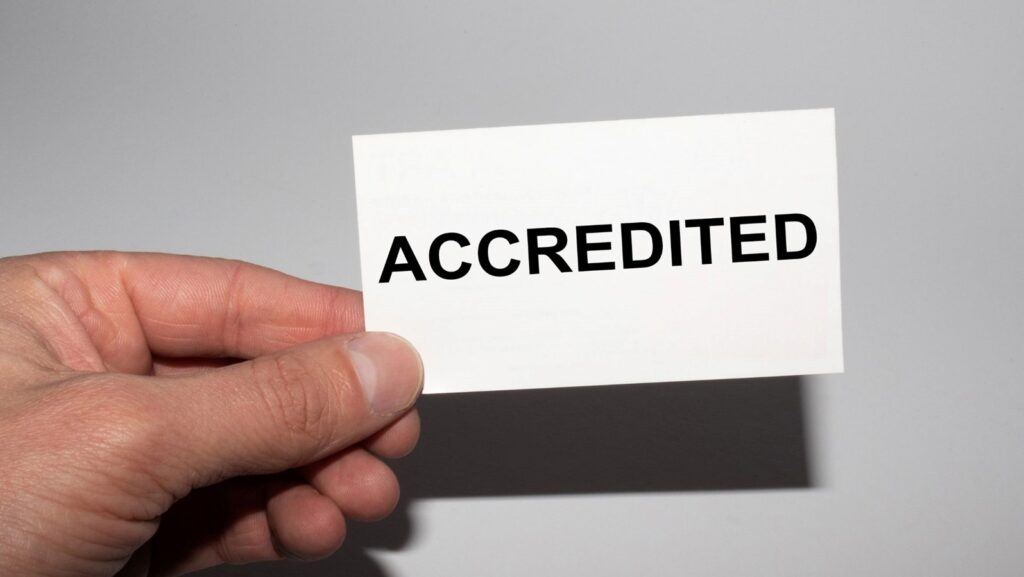Looking for the right MBA program? We bring you a series of quizzes to help you introspect and decide whether MBA in Tier 2 cities align with your preferences, career goals, and values or not.
These quizzes cover key factors (like accreditation, global collaborations, B-School ranking, etc.) that help one decide which MBA program they should try for:
Quiz 1: Accreditation of the College and the MBA Program

1. How crucial is an ‘A’ grade by NAAC in your choice of an MBA programme?
a) Essential.
b) Important. I would choose an A-grade college irrespective of its location.
c) Valued but not a dealbreaker.
d) Irrelevant; I have other priorities.
2. How much emphasis do you place on awards for a school’s placement efforts?
a) A lot. I want to study in a college with superior placements.
b) Quite a bit. I would prefer a college with a good placement record.
c) Some; while awards are nice, they don’t strongly sway my choice.
d) Little; I’m more focused on curriculum and teaching quality.
3. Does a college’s commitment to quality and inclusive leadership influence your choice?
a) Definitely.
b) Yes; if a B-school is recognised for its teaching quality, it would be my priority.
c) To some extent; it’s a plus but not a primary factor.
d) Not much; practical aspects of the programme are my focus.
4. How vital are international affiliations and publications in your MBA college selection?
a) Very Important; affiliations and publications add value to an MBA program.
b) Important.
c) It’s a bonus, not a key deciding factor.
d) Of little concern; I prioritize local reputation and connections.
5. How much do a college’s sustainability efforts influence your decision?
a) Greatly; I want to study in a college with the right values.
b) A lot; efforts like these resonate with me.
c) Somewhat; other factors are more pivotal.
d) Minimally; my focus is academic reputation and program quality.
Results and Interpretation:
- Predominantly A’s: You lean towards prestigious, urban colleges. Exploring acclaimed Tier 2 institutions could offer unexpected benefits and align with your values.
- Predominantly B’s: Your preferences align with institutions that exhibit excellence and sustainability, regardless of their location. Check out colleges’ accreditations and affiliations outside Tier 1 cities for good options.
- Predominantly C’s: You appreciate recognitions but don’t deem them as decisive. B-schools in Tier 2 cities, like SMS Varanasi, that have won ‘A’ grade accreditation by NAAC can be a good choice for you.
- Predominantly D’s: Your focus is on practical and academic facets of a program, not on accolades or sustainability. You might find good MBA programs in Tier 2 cities that meet your practical and academic needs.
Quiz 2: Global Collaborations

1. How important are international academic alliances to you in choosing an MBA programme?
a) Extremely; international collaborations mean that the institution offers better study options.
b) Very; alliances like these are highly valued.
c) Somewhat; while they’re beneficial, they’re not my main focus.
d) Not important; I prioritize domestic collaborations.
2. Would the opportunity for international tours to learn about global business impact your choice of MBA programme?
a) Absolutely.
b) Yes; international experiences can be significant in my career success.
c) It would be nice, but it’s not a deciding factor.
d) No; I’m more interested in local market learning.
3. How significant are MOUs for student and faculty exchange in influencing your decision?
a) Extremely; MOUs with international universities are characteristic of advanced, urban institutions.
b) Very.
c) Moderately.
d) Minimal.
4. Would the availability of joint research opportunities with international institutions affect your choice?
a) Definitely; it should be the defining feature of the MBA program I join.
b) Yes; such collaborations make a B-school noteworthy.
c) It’s advantageous but not critical.
d) No; I focus more on individual research opportunities.
5. How crucial is international exposure for you during your MBA?
a) Essential.
b) Important.
c) Beneficial but not a primary concern.
d) Not crucial; my main focus is domestic management issues.
Results and Interpretation:
- Predominantly A’s: Business schools with significant international collaborations seem to be your first choice.
- Predominantly B’s: You value international exposure and collaborations in an MBA program. Broadening your search to include schools like SMS Varanasi may provide you with more options.
- Predominantly C’s: While international collaborations are appreciated, they aren’t the deciding factors for you. You should look for a B-school which has other things you value more.
- Predominantly D’s: Since your focus is on domestic aspects of an MBA programme, you should look for institutions that excel in areas you deem more important.
Quiz 3: B-School Ranking

1. How does a B-School’s ranking affect your decision in selecting an MBA programme?
a) It’s crucial; high-ranking schools offer superior education and opportunities.
b) It’s important; a top 50 ranking like SMS Varanasi signifies quality and reputation.
c) It’s a consideration, but not the only factor.
d) It’s not significant; other factors are more important.
2. Which award could influence your choice the most in selecting an MBA institution?
a) Best B-School Award (North) from ASSOCHAM, India
b) ASSOCHAM National Leadership Excellence Award in Higher Education (North)
c) Best Institute of UPTU from Confederation Of Education Excellence (CEE)
d) B-School Leadership Award
3. What value do international recognition and awards add to a B-School for you?
a) Immense; they indicate global standards and quality.
b) Substantial; awards like those won by SMS Varanasi signify international acclaim.
c) Moderate; they are noteworthy but not decisive.
d) Little; my focus is on domestic recognition.
4. How significant is it for a B-School to have been awarded for their efforts in placements?
a) Very significant; it reflects successful career prospects post-MBA.
b) Significant; such awards are reassuring.
c) Somewhat significant; but other factors play a bigger role.
d) Not significant; placements are not my primary concern.
5. Would an award for “Innovations in Building Academic and Industry Interface” sway your B-School choice?
a) Absolutely; it indicates a progressive and industry-relevant curriculum. b) Yes; such an award demonstrates a forward-thinking education.
c) It would be a positive point, but not a determining factor.
d) No; curriculum innovation is not a priority for me.
Results and Interpretation:
- Predominantly A’s: Your choice leans towards institutions with high rankings and international recognition, suggesting a preference for reputed and globally acclaimed B-Schools.
- Predominantly B’s: You value quality education and recognition and would prefer a school with accolades to its name.
- Predominantly C’s: While recognitions and rankings are appreciated, you weigh multiple factors in choosing a B-School. Institutions like SMS Varanasi could offer a balanced blend of reputation and other attributes you are looking for.
- Predominantly D’s: Your focus is more on personal priorities rather than external recognitions and awards. Still, exploring various aspects of business schools might help in finding institutions that meet your unique needs and preferences.
Quiz 4: Commitment Towards Employability

1. How significant is a robust Employability Enhancement Programme (EEP) in your choice of an MBA institution?
a) Paramount; it is indicative of the institution’s commitment to student success.
b) Very significant; a well-structured EEP ensures better placements.
c) Helpful; but not the sole determinant in choosing a B-school.
d) Not significant; other factors are more important to me.
2. How would the availability of an advanced online learning platform like MOODLE impact your choice?
a) Greatly; continuous access to education is crucial.
b) Significantly; it’s vital for modern learning environments.
c) Marginally; while important, it’s not a primary concern.
d) Minimally; I prefer traditional learning methods.
3. How much do you value the availability of a language lab and behavioural dynamics lab for enhancing soft skills and mental health?
a) Immensely; they are essential components for holistic development.
b) Highly; developing soft skills and maintaining mental health are key.
c) Somewhat; they are beneficial but not decisive.
d) Slightly; my focus is mainly on academic resources.
4. How does the inclusion of Business Analytics and Foreign Language Training influence your decision in selecting a B-school?
a) Profoundly; they are indispensable in the current global scenario.
b) Strongly; acquiring diverse skills will set me apart.
c) Moderately; they add value but aren’t deal-breakers.
d) Slightly; my priority is the core MBA curriculum.
5. How crucial is undergoing various development and training sessions like Group Discussions, Aptitude Tests, and Personal Interview training sessions to you?
a) Absolutely essential; they are foundational for securing placements.
b) Very crucial; such sessions greatly enhance my employability skills.
c) Beneficial; but my decision is based on multiple factors.
d) Not crucial; I can prepare for such things independently.
Results and Interpretation:
- Predominantly A’s: Your preference clearly leans towards institutions which focus on their students’ employability
- Predominantly B’s: You value advanced and diverse learning resources. Exploring offerings at SMS, Varanasi might align well with your aspirations.
- Predominantly C’s: While you appreciate additional resources and programmes, they are not your main focus.
- Predominantly D’s: Your focus seems to be on traditional learning and individual preparation. It would be wise to look for institutions that align well with your educational philosophy.
Quiz 5: Holistic Development & Industry Collaborations

1. How essential do you find holistic development and industry collaborations in your choice of an MBA programme?
a) Imperative; they are crucial in acquiring real-world knowledge and skills.
b) Important; such collaborations enrich the learning experience.
c) Beneficial; they add value but are not a deal-breaker.
d) Not important; I prioritise the academic curriculum.
2. The Centre for Corporate Relations (CCR) at SMS facilitates industrial interactions such as guest lectures and industrial visits. How influential would this be in your selection of a B-school?
a) Extremely; industrial interactions are pivotal for practical knowledge.
b) Quite; they offer insights into real-world business scenarios.
c) Somewhat; it’s good to have, but not essential.
d) Not at all; I am more focused on theoretical learning.
3. At SMS, we emphasize on on ethical and spiritual dimensions of work and life through the Centre for Spirituality and Human Enrichment (C-SHE). How crucial is this aspect to you in choosing an MBA programme?
a) Vital; it ensures a balanced and rounded development.
b) Significant; it’s beneficial to understand all dimensions of business.
c) Moderate; it’s a plus but not my main concern.
d) Minimal; I am more concerned with tangible business skills.
4. How significant are collaborations with experts from academia and industry, such as those facilitated by SMS Varanasi, in impacting your decision to choose an MBA programme?
a) Paramount; they offer unparalleled insights and learning.
b) Important; interactions with industry experts can be very enlightening.
c) Advantageous; they provide an extra layer of learning.
d) Not crucial; I can gain insights through other means.
5. SMS has a Centre for Entrepreneurship, Innovation & Skill Development (CEISD). How impactful is this feature to you?
a) Crucial; fostering entrepreneurial spirit is key.
b) Significant; it provides a competitive edge in the business world.
c) Useful; but other aspects are more important.
d) Not significant; I have different priorities in an MBA programme.
Results and Interpretation:
- Predominantly A’s: A holistic development approach and strong industry collaborations are essential to your ideal MBA programme.
- Predominantly B’s: You value holistic development and industry collaborations. SMS Varanasi, with its myriad of features and collaborations, aligns well with your preferences and could be a suitable choice.
- Predominantly C’s: While you appreciate the added value of holistic development and industry collaborations, they are not your primary focus.
- Predominantly D’s: Your focus seems to be more on academic aspects and theoretical knowledge. An intensive MBA program might be the best choice for you.
Conclusion
These step-by-step quizzes can help you understand their preferences and values and choose the right MBA program for them. Once you know what you are looking for, it becomes easier to narrow down your choices and discover rewarding opportunities in Tier 2 cities.





